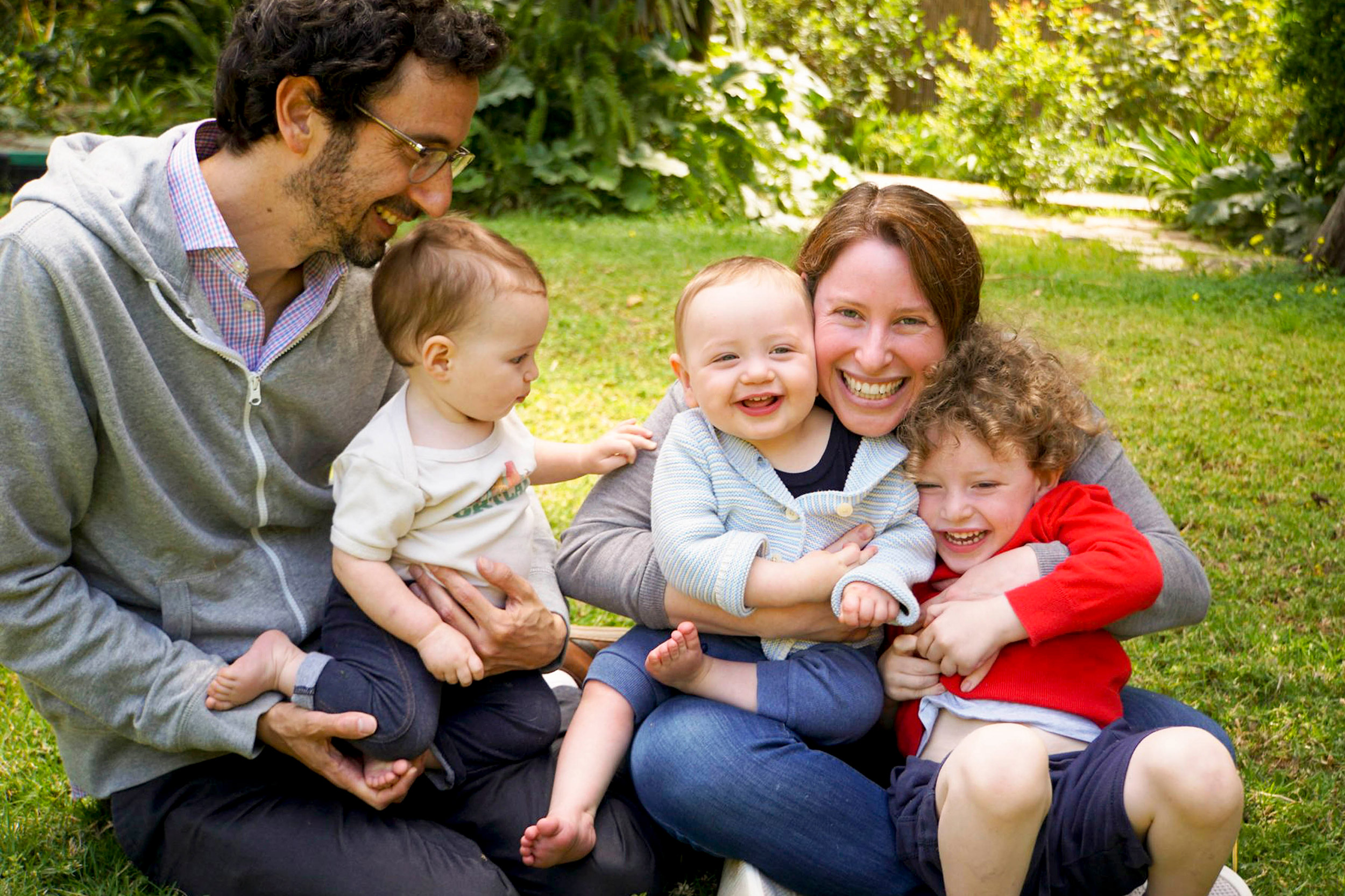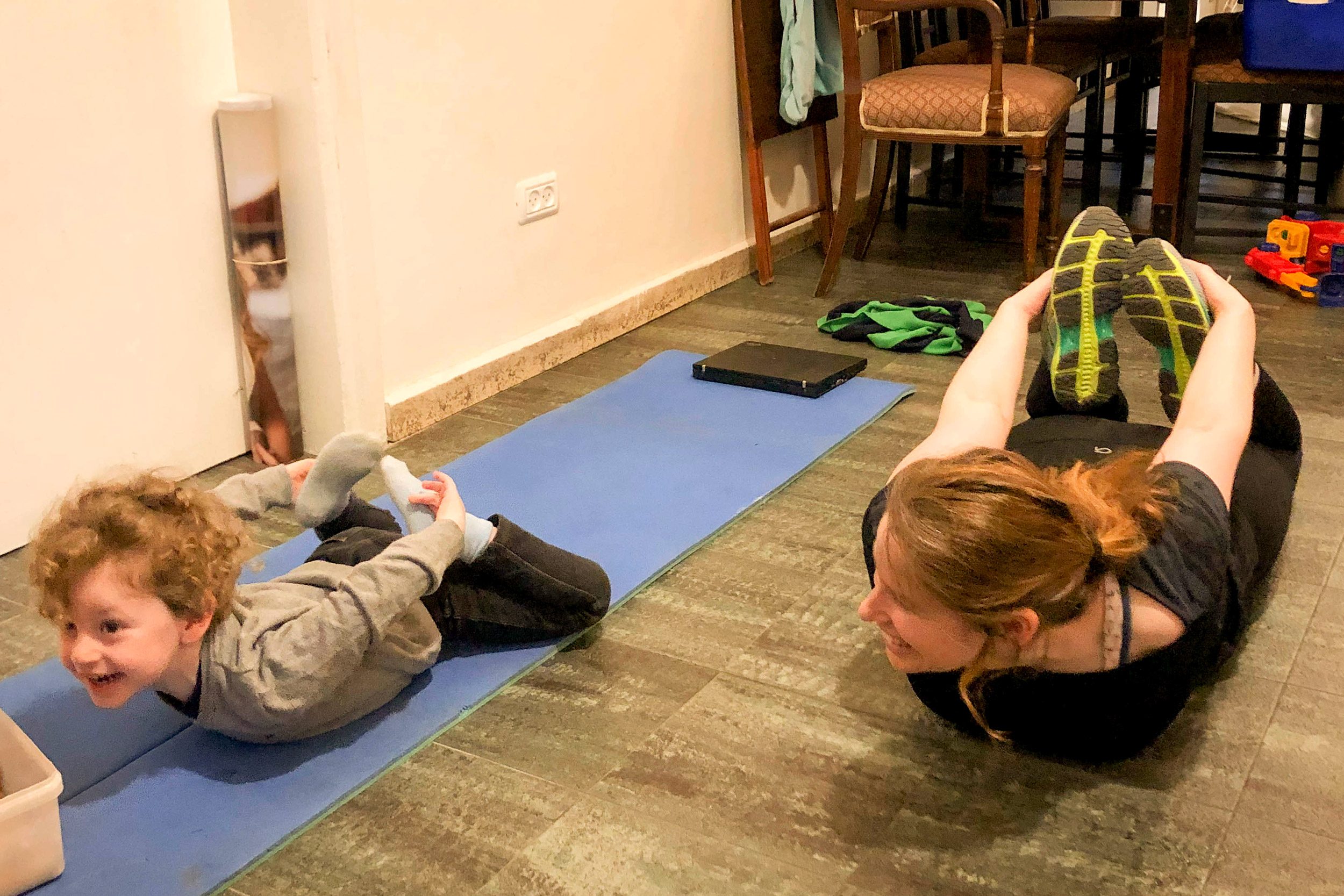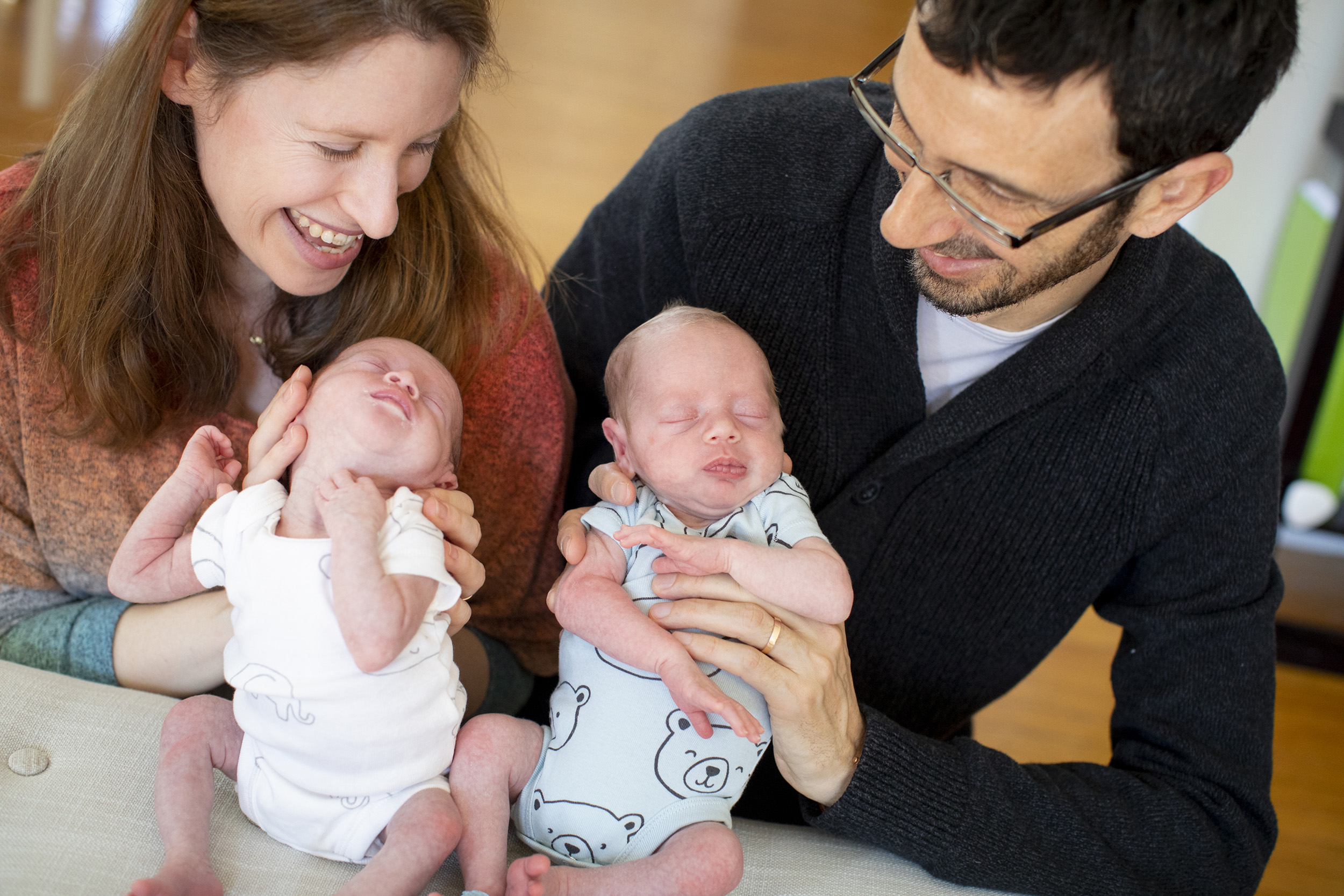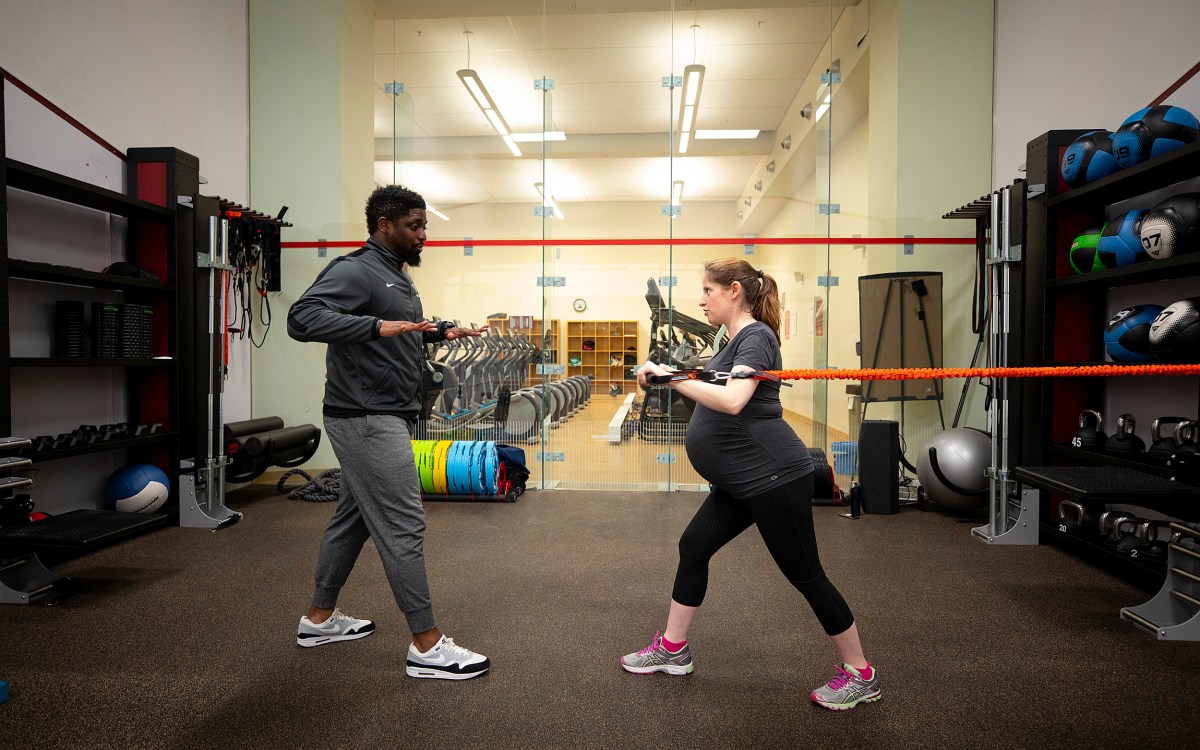
Talia Gillis in Jerusalem with husband Avi Turgeman and their three children, 1-year-old twins Bella and Libi, and Elia, 3.
Photos courtesy of the Gillis family
Back where she began, but much changed
Talia Gillis held her own commencement at her childhood home in Jerusalem — along with her parents, husband, and 3 kids
This is one in a series of profiles showcasing some of Harvard’s stellar graduates.
Graduate student Talia Gillis, quarantining in Israel, planned to have her own commencement ceremony upon graduating from Harvard Law School.
“My father will act as Middlesex Sheriff, my mother will be the Class Day speaker, and my husband, Avi, will receive an honorary degree for his work on crowd control. Elia (age 3) will deliver his address in Latin.”
A year ago, Gazette readers were introduced to Gillis, who was undertaking two doctoral programs while pregnant with twins and chasing a toddler at home.
Along with husband, Avi Turgeman, Gillis and all three children (Elia and year-old twins Bella and Libi) arrived in Israel on March 15. When they came out of their 14-day quarantine, COVID-19 had locked down the country.
While the government is now starting to allow people to return to work and young children to return to school, Gillis predicts another lockdown. In the meantime, her family of four adults and three children share office and play space in the 1,000 square feet in which she grew up. Her parents’ apartment looks nothing like some of the serene Facebook posts she’s seen. Instead, says Gillis, their days are “chaotic crisis management” — but that didn’t stop her from writing her thesis from her childhood bedroom.

Gillis drew inspiration from female advisers and mentors. Together they shared thoughts and experiences and she gained some perspective on being a mother and having an academic career. Like many graduate student parents, their lives consisted of carefully crafted child care plans, and the difficult reconciliation of graduate studies with family life, and Gillis stressed the importance of good and affordable child care even during good times.
In harder times, such as in the current pandemic, Gillis, who is also an economist, said, “I think that the current crisis will have a profound effect on household finances and financial decision-making, topics which I have studied for the past few years. We often highlight the fact that many households don’t have access to the required liquid funds if they incur a cost like a medical bill or car repair, let alone the funds to weather a pandemic. I expect we will learn a lot about the ways in which people accumulate debt and how life experiences shape overall financial resilience.
“I think the crisis puts the spotlight on the implications of economic inequality and lack of public health services accessible to all,” she continued. “It also highlights how mutually dependent we are on one another in maintaining public health, within the U.S. and worldwide. I hope that my kids do not experience another pandemic in their lifetime, but that we also internalize that when many people are financially and socially fragile in the best of times, the implications at a time of crisis are catastrophic.”

Gillis plans to return to the U.S. in the summer and begin a position as an associate professor at Columbia Law School, teaching contracts to 1Ls in the fall. To increase her chances of having an in-person commencement at Harvard, she will postpone her business economics Ph.D. graduation for a few months.
These days, her family spends as much time as they can on their balcony or in the garden enjoying Jerusalem’s beautiful spring weather. Wrote Gillis, “Thankfully, my family is doing well … Being around family has been great, especially for the kids, who get to spend time with their grandparents. It’s also good for morale because with four adults there is more likely to be at least one optimist at any given time.”





